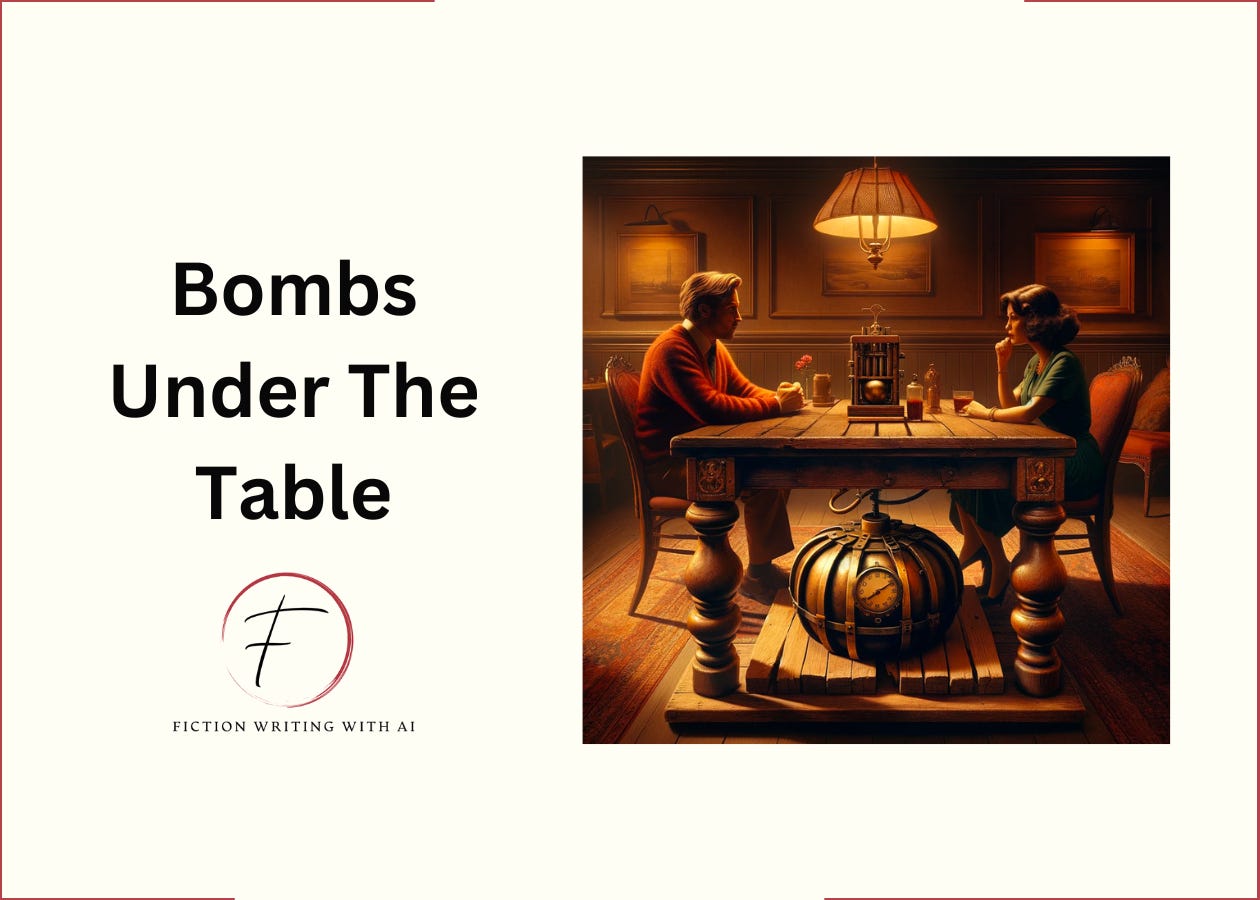I froze.
A lady 2 tables over from me in Starbucks set a diamond necklace on her bag sitting on the floor next to her chair. She was showing her friend what appeared to be a gift. But then got distracted by a text.
At the same time, I noticed this guy at another table eyeing the necklace.
Not glancing.
Staring.
The lady was clueless.
He stood up and walked toward her table. His eyes shifted between the door and the carelessly placed necklace.
I’m thinking:
I’m about to have to form tackle a guy in the middle of a coffee shop (before my caffeine even kicks in).
But just as he was about to snag the jewels…
The lady turns, sets her phone back on the table, and bends down to pick up her bag—and the necklace. (Completely unaware of how close she was to being robbed on a Tuesday morning).
The guy froze and walked out empty-handed.
It was like watching a bomb about to go off.
Thankfully, it didn’t.
I knew this guy was a threat, but the lady had no idea. The tension was unreal, sitting there frozen, heart pounding, waiting for the second everything goes south.
Here’s the lesson for you, my dear storywriter…
When your reader is aware of danger, but your characters are in the dark—that’s suspense.
And suspense sells!
Google “Alfred Hitchock.” His largest payday came from his 1960 suspense filled film "Psycho," which landed him $15 million (roughly $120 million today).
His secret?
Put A Bomb Under The Table
"Bombs Under the Table" is a famous illustration of Alfred Hitchcock’s approach to suspense.
The concept is straightforward:
Imagine there is a bomb under a table around which people are sitting, and they are unaware of the bomb's presence. If the bomb explodes, that's a surprise. However, if the audience is aware of the bomb but the characters are not, that creates suspense.
The audience must have more information than the characters in the scene.
The reason it’s so compelling is because you as the viewer / reader hope to discover if the characters will realize the danger they are in or whether they will escape it. (Hint: your characters must escape or else your audience will get angry with you because you didn’t give them any relief!)
Here’s Alfred:
The fun for you as a storywriter is dreaming up these “bombs” or “things that could go wrong” in your story to create suspense for the reader.
And lucky for you (and me), ChatGPT excels at coming up these kinds of ideas.
Use ChatGPT To Generate 50 “Things That Could Go Wrong” In Your Story
Let’s create some suspense in 3 quick steps:
Keep reading with a 7-day free trial
Subscribe to Fiction Writing With AI to keep reading this post and get 7 days of free access to the full post archives.




